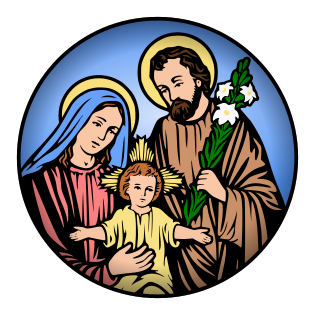Recently I read an article entitled: The Hope of Lent in which the author makes note of the fact that Salvation History teaches us, time and time again, of the futility of our endeavors without God, of how we fall flat each time we assert or own will and earthly pursuits. For example, how the nation of Israel wanted to “go it alone”, have their own king, become a worldly power which resulted in the loss of the Ark of Covenant, the Temple, and eventually the Kingdom itself.
Prodigal Son exhibits the same behavior we see among the ancient Israelites in their relationship with God – asserting his own will, wanting to go it alone and be independent. But it fails him. He fails. But notice how the parable begins: “a man had two sons…” The focus is not so much on the prodigal son, nor on the brother… it is on the father. St. Luke is setting the stage to give us an insight as to who the father is, the nature of his own identity – and that of God. The younger son doesn’t just ask for his “share”, he asks for a separation from all family ties. Essentially, he saying – I no longer want to be associated with you – you’re dead to me. He distances himself from family, homeland, where he truly belongs… The father’s response is remarkable – he agrees. He does not get in the way of his son’s choice, he does not hinder his freedom. Of particular note are two things: first, the phrase “coming to his senses” – literally meaning “he came to himself” … what did he realize – this is not where I belong, this is not my identity. Second, how the father responds to his return… just as the father did not hinder the freedom of the son, so now it is time for him to exercise his own freedom – the freedom to forgive, to show mercy, to welcome home. In this the father shows his true identity, of what he is all about… This is the identity of our God.
We may not all drift as far as the young son in this parable, we may not turn our backs totally on the Lord, as if to say, I want nothing to do with you – we may have at time or another, we may know some folks who hold to this attitude – but we can relate. We can relate because we have all tried to go it alone. We have said, there are people out there who are suffering worse than me, I don’t need to bother God with my problems, sins, and worries. We have all expressed agony and frustration because “at this point in my life, why do I still act like this… struggle with this… have a problem with this…” Present society only feeds these attitudes – self-care, self-help … you got this… But we still struggle, we still have sins, we still fail in one way or another…
But our failures to do not define us, these do not make up our identity … That is the beauty of the parable… Lent affords us a time to “come to our senses” or literally “come to ourselves” to rise up and go to the Father with all the sickness of our souls … Fasting, prayer and almsgiving are the external practices that are a reminder to us of our radical dependency on God, that we belong to Him, that we are His sons and daughters … In a very specific way, when we express our sins in the Sacrament of Confession we begin to understand, experience the heart of who God is, we encounter Him in His freedom to forgive, to heal, to transform and make new… This is the hope of Lent. The hope that we might put aside our ego, our pride, the assertion of our self and be humble enough to say: Father, I have sinned… In that we, we allow Him to exercise His mercy – this is our hope, the hope of Lent …
The parable ends with the older son left to make his own choice – will he go in and join the party or remain outside, distant, pouting? A similar decision lies within the hearts of us all – what will be the choice?
